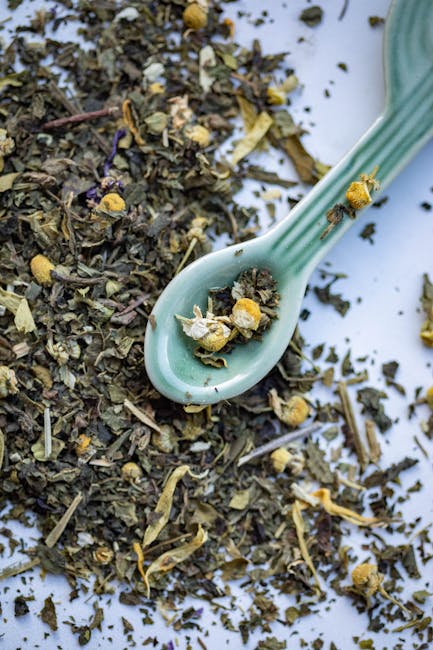How to Balance Your Gut Microbiome Naturally with Herbs
In recent years, the importance of gut health has gained significant attention, and for good reason. Your gut microbiome, a vibrant community of trillions of microorganisms residing in your digestive tract, plays a crucial role in your overall well-being. A balanced microbiome not only aids digestion but also supports your immune system, mental health, and even influences your weight. In this blog post, we will explore how you can balance your gut microbiome naturally with the help of herbs.
Understanding the Gut Microbiome
Your gut microbiome consists of diverse microorganisms, including bacteria, viruses, fungi, and other microbes. These tiny residents are essential for maintaining various bodily functions. However, factors such as poor diet, stress, antibiotics, and lack of sleep can disrupt this delicate balance, leading to issues like digestive disorders, weakened immunity, and mental health problems.
According to research, a diverse gut microbiome is a healthy one. A study published in The Journal of Nutrition found that individuals with a greater diversity of gut bacteria had better metabolic health, including lower levels of inflammation and healthier body weight.
The Role of Herbs in Balancing Your Gut Microbiome
1. Ginger
Ginger is a well-known herb used for centuries to aid digestion. It contains bioactive compounds like gingerol, which have anti-inflammatory and antioxidant properties. According to a study published in the World Journal of Gastroenterology, ginger can enhance gastric motility and stimulate the production of digestive enzymes, promoting a healthy gut environment.
To incorporate ginger into your diet, consider drinking ginger tea or adding fresh ginger to smoothies and dishes.
2. Turmeric
Turmeric, with its active compound curcumin, is renowned for its anti-inflammatory properties. Research published in Gut highlighted that curcumin can help reduce gut inflammation and modulate gut microbiota composition, potentially improving conditions like irritable bowel syndrome (IBS).
To benefit from turmeric, try adding it to curries, golden milk, or using it as a seasoning for roasted vegetables.
3. Peppermint
Peppermint is widely recognized for its soothing effects on the digestive system. A study in the Journal of Clinical Gastroenterology demonstrated that peppermint oil can alleviate symptoms of IBS by relaxing the muscles of the gastrointestinal tract and reducing bloating.
Peppermint tea is a simple and effective way to enjoy the benefits of this herb. Alternatively, consider using peppermint oil capsules as a supplement.
4. Fennel
Fennel seeds are a popular remedy for digestive issues due to their carminative properties, which help reduce gas and bloating. According to a study in the Journal of Ethnopharmacology, fennel can improve gut motility and enhance digestion.
Incorporate fennel seeds into your diet by adding them to salads, soups, or chewing them after meals for better digestion.
5. Chamomile
Chamomile has been used for centuries to promote relaxation and digestive health. Research published in Phytotherapy Research found that chamomile can help reduce inflammation and soothe the stomach lining, making it beneficial for individuals with gastritis or indigestion.
Sip on chamomile tea to enjoy its calming effects and support your gut health naturally.
Creating a Gut-Friendly Lifestyle
While herbs play a significant role in balancing your gut microbiome, lifestyle factors also contribute to overall gut health. Here are some actionable tips to support a healthy gut:
1. Eat a Diverse Diet
Consume a variety of fruits, vegetables, whole grains, and fermented foods. These foods provide prebiotics and probiotics, which nourish beneficial gut bacteria.
2. Stay Hydrated
Adequate hydration is essential for maintaining a healthy digestive system. Aim to drink at least 8 glasses of water daily.
3. Manage Stress
Stress can negatively impact your gut health. Practice stress-reducing activities like yoga, meditation, or deep breathing exercises.
4. Get Enough Sleep
Quality sleep supports the body’s natural repair processes, including those in the gut. Aim for 7-9 hours of sleep each night.
Conclusion
Balancing your gut microbiome naturally with herbs is a holistic approach to improving your overall health. By incorporating herbs like ginger, turmeric, peppermint, fennel, and chamomile into your daily routine, you can support digestive health, reduce inflammation, and enhance your well-being. Remember, a healthy gut is a cornerstone of a healthy life, so start nurturing your microbiome today with the power of nature’s herbs.
Discover more from NatureZen Market
Subscribe to get the latest posts sent to your email.











